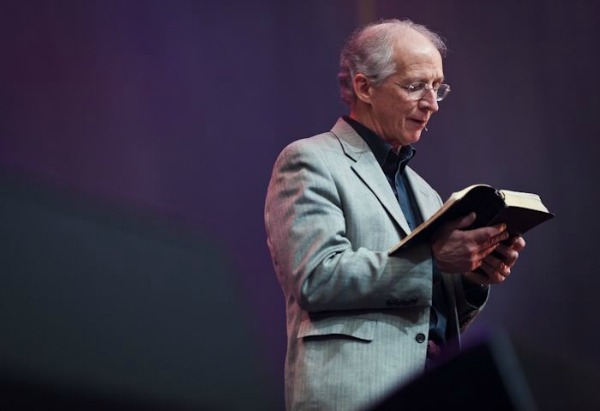 In the Kingdom of God, there’s a place for everyone, but I suppose not all of us are comfortable in leadership positions. Lately I’ve been asking myself, how does one recognize leadership potential? This is coming up in my life this week because I have to oversee the process of appointing captains of the soccer team I coach. One approach is for me to just assign them. Another would be for me to pick one and let players vote for another. A third would be to just boldly allow them to vote on all 2 or 3 captains’ positions.
In the Kingdom of God, there’s a place for everyone, but I suppose not all of us are comfortable in leadership positions. Lately I’ve been asking myself, how does one recognize leadership potential? This is coming up in my life this week because I have to oversee the process of appointing captains of the soccer team I coach. One approach is for me to just assign them. Another would be for me to pick one and let players vote for another. A third would be to just boldly allow them to vote on all 2 or 3 captains’ positions.
The same thing comes up on mission teams. Do we just set it up so that the team members vote for someone as team leader? Or do we just let the regional guy *appoint* a team leader. (Our organization currently does the latter.) What’s your protocol… or, if you had it to do over again, what would you recommend for others.
But beyond mere *practice*, what are the qualities you look for in budding young leaders? Steadfastness under pressure? Ability to handle stressful situations without panic? Intelligence? Sensitivity? Diplomacy? Ability to grasp the vision? What are your favorite “top five” characteristics for leaders? Just click on “comment” below this item and have at it. Please help us assemble a body of knowledge, links & pointers, and life lessons. Thanks!
Doug











Recognise leaders by their:
-reputation amongst their peers.
-ability to get others to follow them.
-interest in others’ growth.
-following agreed plans.
Hesitate regarding those who:
-want followers to be assigned to them.
-seek political offices.
-require adequate financial remuneration.
-appeal to their qualification.
We’re looking into the same subject. One interesting criteria set is raised in the excellent CCL.org’s White Paper on The Changing Nature of Leadership.
“Central to the CCL definition of effective leadership are these three tasks: setting direction, building commitment and creating alignment. It is believed that if these outcomes are achieved, leadership must be present. (page 10)”
That suggests, then, that these are central characteristics to recognize leadership potential:
1. Direction Setter
2. Commitment Builder
3. Alignment Creator
These comments offer excellent input. Also, there are others watching this feedback. I just rec’d a private note from the leader of a global partnership development firm, saying he was going to be watching this thread closely because they were addressing the same subject currently too. Please spread the word to others with a stake in this subject. Thanks.
Doug
I wonder if different circumstances/challenges don’t call for different kinds of leadership, therefore, different kinds of people and qualities. It may be that there is a ‘core’ group of qualities that go with any effective leader. However, it probably takes a different person/skill set to lead a team in a successful short-term yet high value/risk objective — whether in sports or in battle. On the other hand, leadership that provides continuity and consistency in a 5-10 year effort by a complex ministry or partnership of ministries addressing some formidable, long-term spiritual challenge may call for yet another set.
From my experience in YWAM, I look for the following leadership qualities among my staff members:
– godly character (especially humility
– servant leadership
– works together as team
– open & teachable
– desire & ability to understand others different than himself
The most important quality in leadership is humility, seen most clearly in four things: 1) a strong prayer/praise life 2) teachableness 3)a desire to help others be successful 4)quickness to ask forgiveness when necessary. Add to this willingness to take responsibility (especially when things go wrong), and a loving concern for those on his team. Last of all would be skills in doing the job (which, if that were all he had, would be dangerous!).
I’d be interested in delving into the appointment vs. election issue of installing leaders. My experience is very limited, but as I look at the Bible, I see Moses appointing judges rather than those judges being elected in Exodus 18, and I see Paul instructing Titus to appoint elders in the churches of Crete. Samuel Rutherford was very convincing to me, however, in _Lex Rex_ that the kings of Israel, no matter how they were selected, had to be approved in a covenantal ceremony by the people they were to govern before they were considered king. This process seemed to have worked backwards in the installation of teh deacons in Acts 6, for those men were first chosen by the congregation and then ordained by the apostles. Does this indicate that both appointment by knowledgable superiors and election by peers should be part of the process?
Key to good leadership is self-awareness, awareness of how you impact others and the ability to address interpersonal disagreements in a positive way. See the book, "Working with Emotional Intelligence" by Daniel Goleman, Bantam Books, New York, 1998. Ken Blanchard is also a great author on this topic.
Two other books I recommend are "Crucial Conversations" and Crucial Confrontations" by four authors, Patterson, Grenny, McMillan & Switzler.
Carol
Chicago area
Leonard Sweet has a book called “summoned to lead”, it is really good. I am fascinated about how a person is summoned to lead, or called. The period of the judges are also very interesting, ordinary men used by God to do extraordinary things, just being faithful to God.
The characteristics I look for are:
1) Trustworthiness- "he who is faithful in little will be faithful in much", give someone a simple assignment that involves a little money and see how they do with it.
2) Integrity & character
3) Consistent walk with God
4) Personal development
5) Servant heart, humility and listens to others
6) Passion and charisma
7) Ability to take directions and correction
Three of the top qualities I would look for in leaders are humility, servanthood, and the ability to provide direction. Two of the greatest leaders I have known within my small world are humble servants who have provided gentle direction to those who follow them. One was the president of a Bible for many years. The other is the president of a missions organization.
The Bible college president was the first person in a large gathering of people to assist when I dropped a glass baby bottle full of milk on a concrete floor during an important meeting. He got down on his hands and knees and cleaned up the mess while others watched. The president of the missions organization can be seen from time to time carrying out the huge garbage bag of kitchen trash to the dumpster. Both men remind me of Luke 14:11: “For everyone who exalts himself will be humbled and he who humbles himself will be exalted.”
I hope that one of your servant-hearted, humble players will be chosen as captain.
I luck for a level of reluctance to always be present. Reluctance to lead (at the early discovery stage of an individuals development)helps me worry less re their motivation for leadership responsibility.
I also agree with a comment Bill Hybels made in his book Courageous Leadership and I paraphrase – Competence can be taught but Character is what it is, so always default to character qualities and build in, resource and teach toward greater competency.